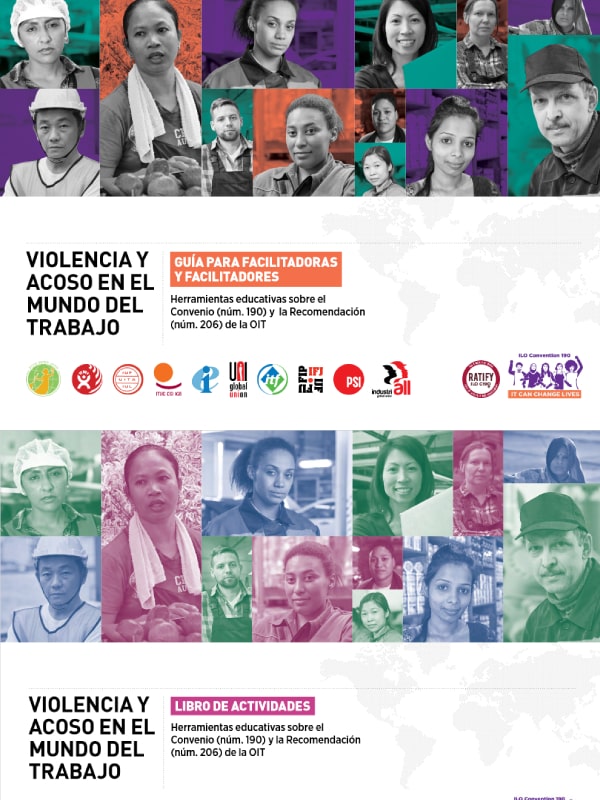
Educational tools on the ILO Convention (No. 190) and Recommendation (No. 206)
This material is made up of the guide for facilitators and the activity book…
IDWFED Publications C190

This material is made up of the guide for facilitators and the activity book…
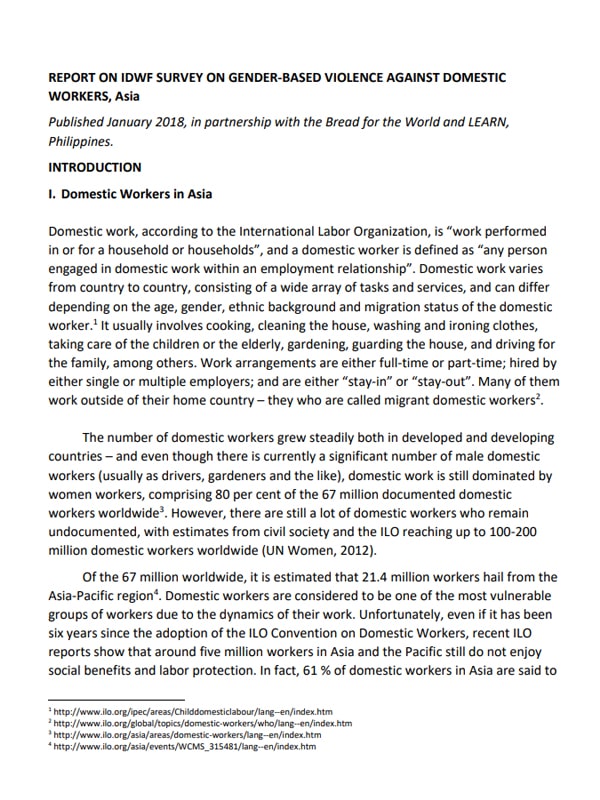
This study aims to complement and inform the IDWF in participating in the various actions to stop gender-based violence in the world of work – in particular, the ILO’s “standard-setting”
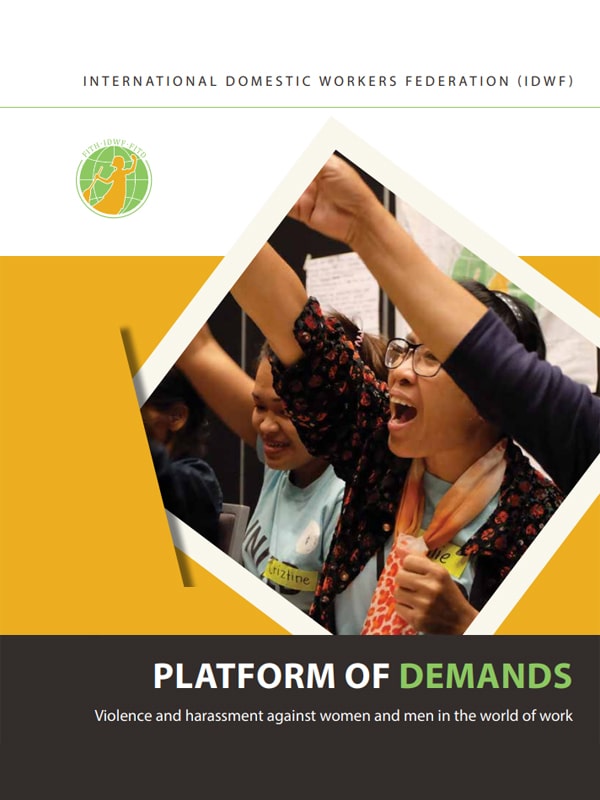
Domestic workers around the world deeply welcome the proposals for an ILO Standard against violence and harassment in the world of work. We welcome it not just for ourselves but
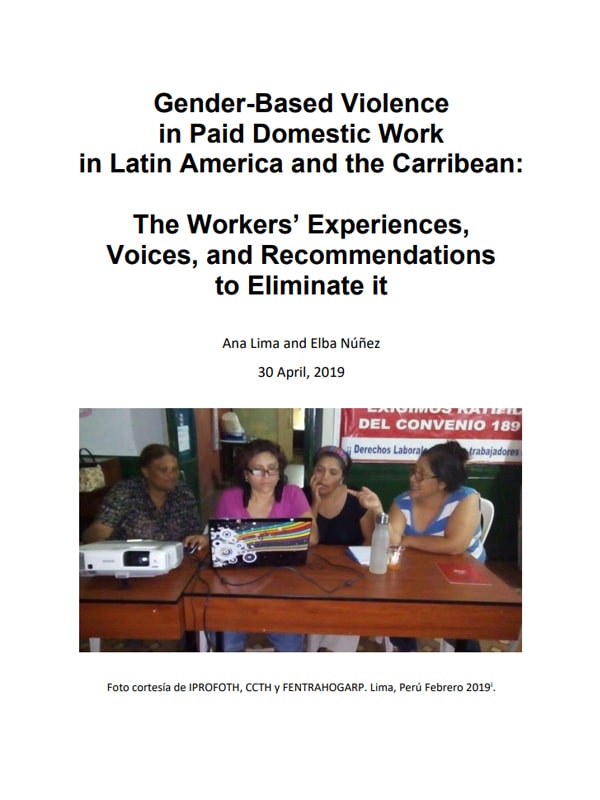
Institutional mechanisms to monitor gender-based equality towards Paid Domestic Workers.
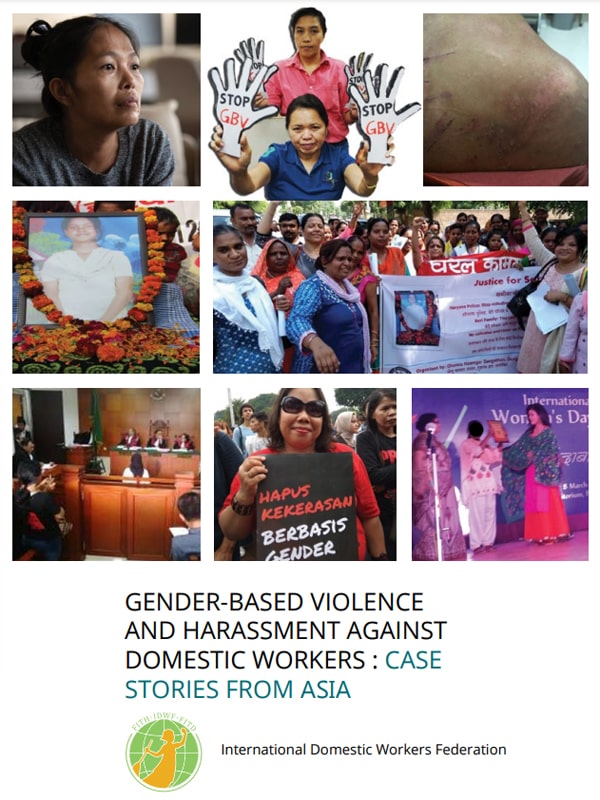
“Gender-based violence has been a silent killer of many domestic workers around the world as we are scared to speak out, afraid of losing our jobs. We need to lift
A new report by Brazil’s Ministry of Social Development, Family, and the Fight Against Hunger, conducted in partnership with the...
International Domestic Workers Federation Report Download Here English
...